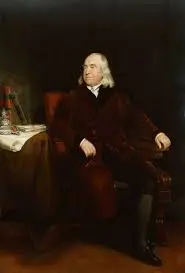Introduction
Jurisprudence, the study or philosophy of law, delves into the fundamental principles and theoretical frameworks that underpin legal systems. Originating in the seventeenth century, modern jurisprudence builds on the foundational ideas of natural law, civil law, and international law.
What is the School of Jurisprudence?
Jurisprudence doesn’t have a single, unified definition as it encompasses diverse ideologies and concepts from around the world. It integrates various disciplines such as psychology, politics, and economics, reflecting the evolving political and social contexts in which it is studied. The Romans are credited with the initial exploration of the meaning of law, which has since developed into a comprehensive field involving policy and interdisciplinary insights.
Also Read: Theory Of Utilitarianism
Types of Schools of Jurisprudence
There are five primary schools of jurisprudence, each offering unique perspectives on the law and its functions.
1. Philosophical School
Also known as the law of nature or higher law, this school has significantly influenced politics, law, religion, and ethics. Dr. Friedman notes that ideas about natural law have evolved alongside societal changes. Historically, natural law had divine or religious origins, while in modern times, it has a strong political and legal foundation. This school views law as a means to preserve social harmony and uphold order, justifying legal limits only if they advance individual freedom within the community. It explores the rationale behind specific laws and their intended goals.
2. Historical School

This school examines the relationship between society and law, suggesting that laws evolve from a society’s customs and needs. Montesquieu, the first jurist of this school, argued in his book “Spirit of Law” that laws must adapt to societal changes. Savigny, another key figure, emphasized that law is a product of historical developments and collective social consciousness, rather than the imposition of a sovereign authority.
3. Realist School
The Realist School, emerging in America and Scandinavia in the 1880s, focuses on the practical application of law, considering judges’ decisions and their underlying mindset. American Realists study judicial decisions and learn from their experiences, while Scandinavian Realists rely solely on personal experiences. Jeremy Frank, a prominent realist, argued that legal accuracy is a myth and outcomes are unpredictable due to numerous variables.
4. Sociological School

The Sociological School integrates various legal schools, emphasizing the interaction between law and modern social institutions. It views law as a tool to advance societal interests rather than individual rights. Roscoe Pound, a leading figure, highlighted the importance of practical over abstract components of law. This school rejects the rigid commands of analytical positivism and historical traditions, advocating for a more empirical and interdisciplinary approach.
5. Analytical School

Also known as the Imperative School, this approach analyzes existing laws and their relationship with the state. John Austin, a key proponent, described the law as commands issued by the state. Other notable scholars include Jeremy Bentham, Erskine Holland, and Sir John Salmond. This school focuses on the structure and function of law within the state’s authority.
Conclusion
The various schools of jurisprudence have profoundly shaped our understanding of law and its purposes. Despite differing viewpoints, all schools aim to maintain law and ensure justice. As legal systems evolve, so do the ideas of jurists, reflecting the dynamic nature of law. This adaptability is evident in the continuous development of legal codes, such as the Indian Penal Code and Cyber Law, to address emerging challenges and crimes.
FAQs on Schools of Jurisprudence
1. What is jurisprudence?
Jurisprudence is the study or philosophy of law, exploring the principles and theoretical frameworks that underpin legal systems.
2. What is the focus of the Philosophical School of Jurisprudence?
The Philosophical School focuses on the law’s role in preserving social harmony and advancing individual freedom within the community.
3. How does the Historical School view law?
The Historical School sees law as evolving from society’s customs and needs, influenced by historical developments and collective social consciousness.
Also Read: Social Contract Theory
Reference: bnblegal.com